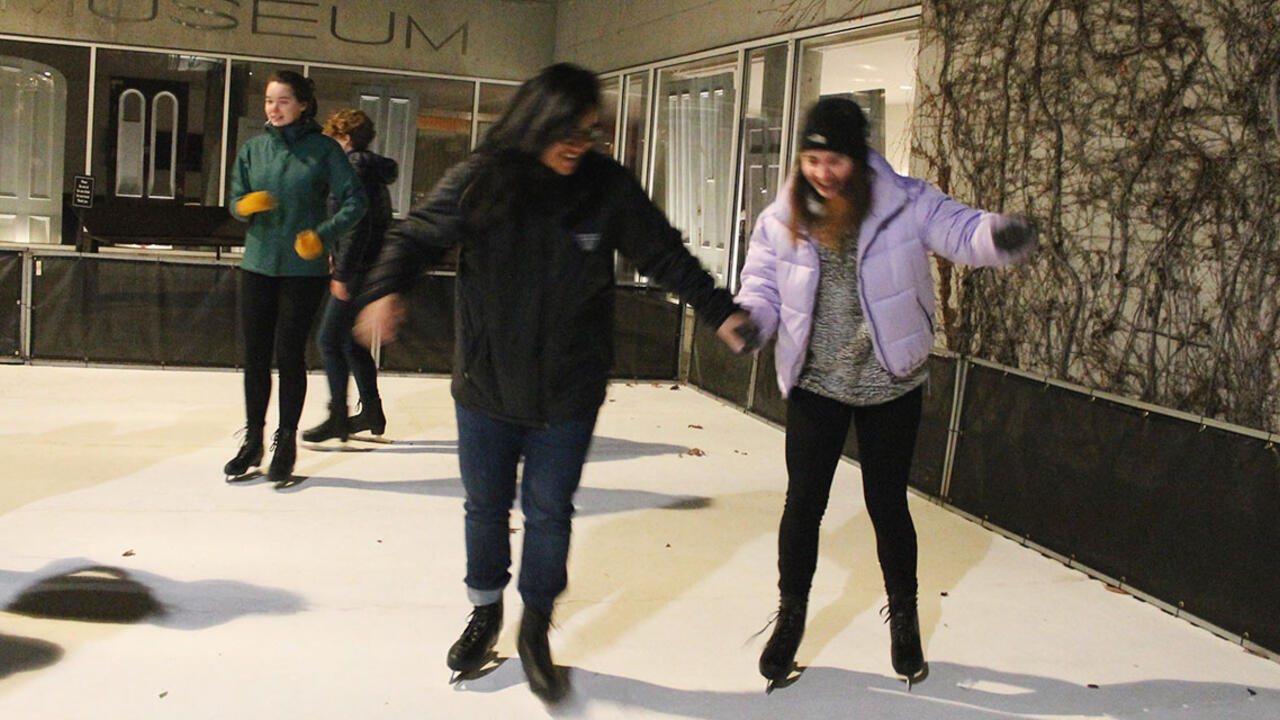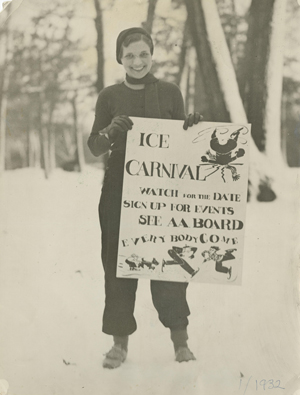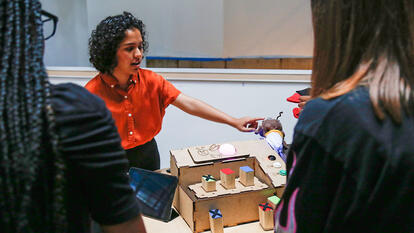Wellesley Revels in the Return of the Winter Carnival

Winter festivities have always been an integral part of the Wellesley experience, and on February 8 the campus was treated to its first Winter Carnival in over 20 years. The carnival entertained students annually for over a century; this year, the Office of Residential Life brought it back to life with fun night of ice skating, hot cocoa, popcorn, and a performance from the MIT-Wellesley Toons a cappella group.
 The tradition of ice carnivals began at Wellesley as early as 1901, and included bonfires, music, fireworks, hot cocoa, and coffee (and often—as was the case this year—slush). The Wellesley Outing Club began sponsoring winter carnivals featuring skating exhibitions, ski-joring (skiing while being pulled by a horse or dog), and tobogganing in what were often frigid temperatures. In 1948, the Winter Carnival was upgraded to the Winter Carousel weekend, consisting of torchlight parades, winter sports, snow sculptures, dancing, and movies, and in 1974 it was reborn as a Winter Whatchamacallit with skiing, live music, beer, an art show, and a Casino Royale. (Source: Wellesley College 1875–1975, A Century of Women.)
The tradition of ice carnivals began at Wellesley as early as 1901, and included bonfires, music, fireworks, hot cocoa, and coffee (and often—as was the case this year—slush). The Wellesley Outing Club began sponsoring winter carnivals featuring skating exhibitions, ski-joring (skiing while being pulled by a horse or dog), and tobogganing in what were often frigid temperatures. In 1948, the Winter Carnival was upgraded to the Winter Carousel weekend, consisting of torchlight parades, winter sports, snow sculptures, dancing, and movies, and in 1974 it was reborn as a Winter Whatchamacallit with skiing, live music, beer, an art show, and a Casino Royale. (Source: Wellesley College 1875–1975, A Century of Women.)
The 2019 Winter Carnival was sponsored by the Office of Residential Life in collaboration with Student Housing, the Office of the Dean of Students, the Office of Student Involvement, the Department of Physical Education, Recreation, and Athletics, Wellesley College Archives, Wellesley Fresh, and the Wellesley Outreach Collaborative.
Photo: Kalau Tanaka-Pesamino ’20 (left) from Wailua, Kauai, Hawaii and Emily Pearson ’20 (right) from San Antonio skate in Davis Plaza.
Photo (Inset): Esther Gebelein ’32, president of the Outing Club and vice president of the Wellesley Athletic Association, shows off a promotional poster for the 1932 Winter Carnival. Photo courtesy of Wellesley College Archives, Library & Technology Services.
With reporting from Lucy Norton ’21



